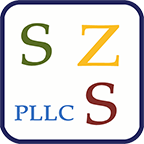Dan Brooks’ amicus curiae brief filed with the U.S. Court of Appeals for the Federal Circuit in Oracle America, Inc. v. Google Inc. addressed to “fair use issues” in the case was cited by the Federal Circuit in its recent decision on the brief’s central point (the brief was filed on behalf of the New York Intellectual Property Law Association).
The brief can be found here. The Federal Circuit’s decision can be found here, with the citation to the brief appearing at p. 39, n.8.
The issue and the decision were described by the New York Intellectual Property Law Association as follows:
On March 27, 2018, the U.S. Court of Appeals for the Federal Circuit handed down its much-anticipated opinion in Oracle America, Inc. v. Google Inc., Appeal Nos. 2017-1118, 2017-1202. Oracle was appealing from a judgment of the U.S. District Court for the Northern District of California holding, after a jury trial, that Google’s unauthorized use of Oracle’s Java computer source code in the Android mobile operating system did not constitute copyright infringement because it was protected by the affirmative defense of fair use. The Federal Circuit reversed the District Court’s rulings and remanded for a trial on damages.
The New York Intellectual Property Law Association (“NYIPLA”) filed a brief amicus curiae in support of neither party, but urging the appellate court to reject the district court’s rationale for holding that a reasonable jury could have found transformative use under the first fair use factor simply because of a change in “context,” namely, the use of Oracle’s computer programming code in smartphones and tablets, rather than in desktop and laptop computers. The Federal Circuit endorsed NYIPLA’s argument, holding that moving copyrighted material to a new context without either altering its expression, meaning, or message, or using it for a different purpose, was not transformative and did not militate in favor of a finding of fair use. Specifically, citing to the NYIPLA amicus brief, the Federal Circuit held that, if a change in context alone qualified as a transformative use, such a rule would “encroach upon the copyright holder’s right to ‘prepare derivative works based upon the copyrighted work.’” Slip Op. at 39, n.8 (citing to the Brief of Amicus Curiae N.Y. Intell. Prop. L. Ass’n at 17-20).

